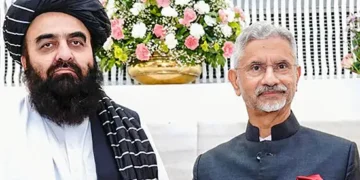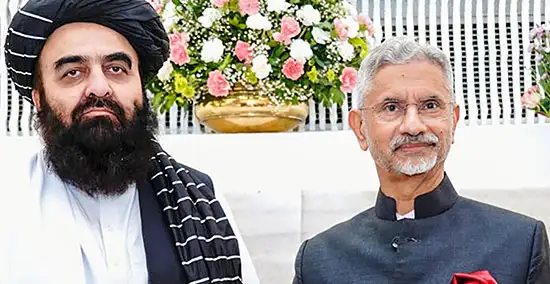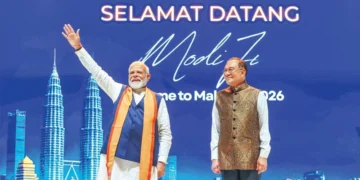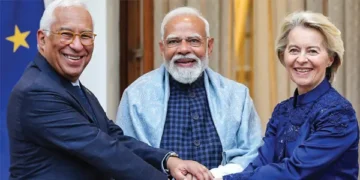AFGHANISTAN Foreign Minister Amir Khan Muttaqi’s eightday visit to India – the first official visit by a Taliban leader since the group took control of Kabul in 2021 – was ground-breaking as it signified an emphatic assertion of India’s strategic autonomy by the Narendra Modi Government at a time when the global security landscape is in a state of flux.
Among the key outcomes of the unprecedented visit was India’s decision to re-establish the Embassy in Kabul. Almost a year after the Taliban took power, the Embassy had been functioning as a downgraded ‘technical mission’, principally to coordinate the distribution of humanitarian aid and development efforts. Muttaqi called India a “close friend” and announced that direct flights would soon start between Kabul and Indian cities, including Amritsar in Punjab. India’s Foreign Minister S Jaishankar underscored the need for “closer cooperation development as well as regional stability and resilience.”
The joint statement issued after their meeting committed to maintaining “close communication and continue regular engagement”.
The reset with the Taliban is part of a policy of pragmatism as New Delhi aims to counter Pakistan’s influence in Afghanistan. The timing is equally significant: amid US attempts to hyphenate India and Pakistan during heightened military conflict.
India has been a first responder in sending relief when earthquakes recently hit Afghanistan. Also, India’s reset with Taliban-run Afghanistan is taking place at a time when the latter’s relations with its erstwhile ally, Pakistan, have deteriorated with clashes across their borders.
Muttaqi, accompanied by Afghan trade and foreign ministry officials, met Indian officials to discuss diplomatic, trade, and economic ties during his visit. Afghan leaders also invited Indian companies to invest in its mining sector, which, the joint statement said, “would help strengthen the bilateral trade and commercial relations”.
In a special gesture, the Modi Government facilitated Muttaqi’s visit to Deoband, in Uttar Pradesh, which hosts the Darul Uloom Deoband, one of the most influential Islamic seminaries in South Asia. During his visit, Afghanistan’s Foreign Minister gave a firm commitment that his nation will never be used as a base for cross-border terrorism against India, and condemned the attack in Pahalgam.
The Taliban’s complex history has made difficult for it to secure global acceptance. Despite that, countries like Russia and China are engaging with the Taliban.because of the geostrategic relevance of Afghanistan Muttaqi’s maiden visit to India has significant geopolitical implications, especially in the aftermath of Operation Sindoor, the Shanghai Cooperation Organisation (SCO) meeting, Trump’s tariff drama, and the optics of the new USPakistan relationship.
Given the geostrategic importance of the renewed India-Afghanistan partnership, it is clear that India neither endorses the Taliban’s socio-cultural conservatism nor approves of its history.
What underlines this relationship is India’s national interest within the changing South Asian geopolitical architecture and its long-standing connection with the people of Afghanistan.


























